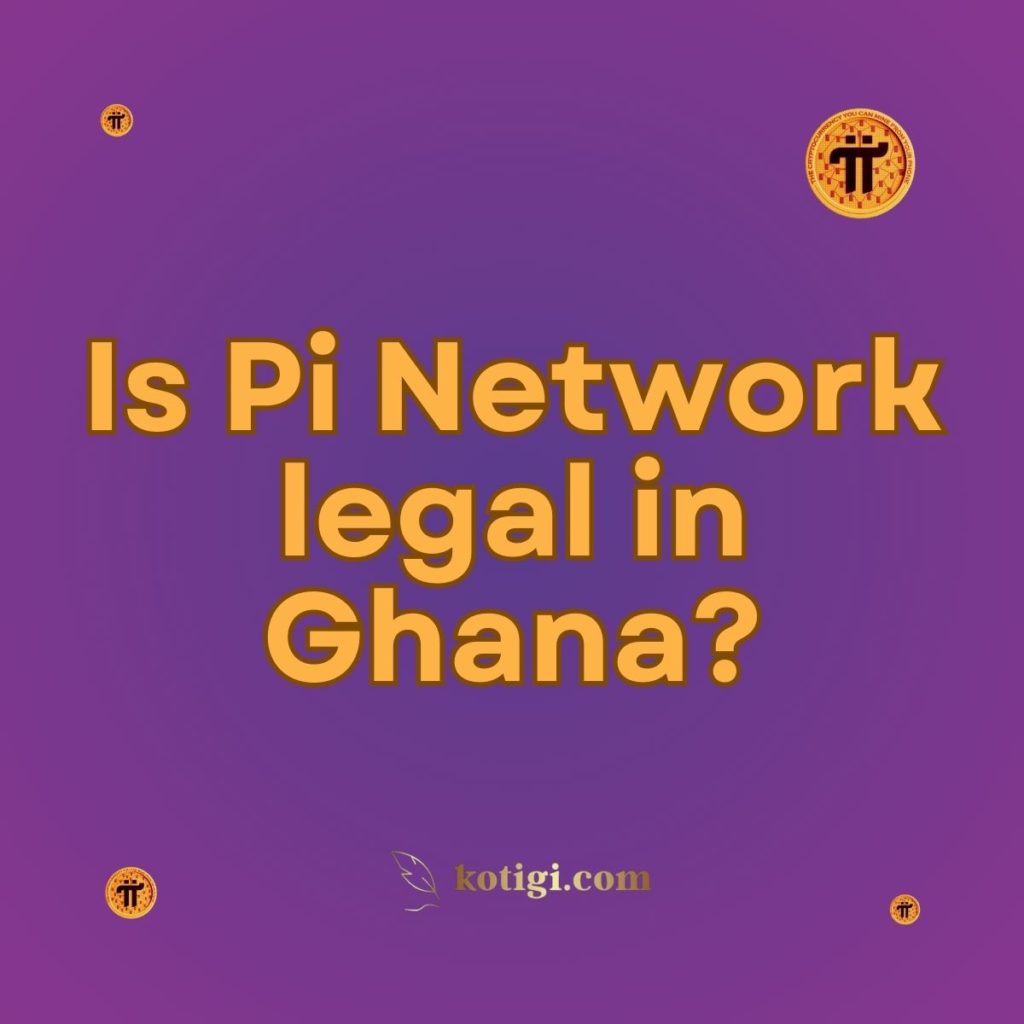
Is Pi Network legal in Ghana?
The legal status of Pi Network in Ghana is currently not explicitly defined, as the country has yet to issue specific regulations or guidance regarding this particular cryptocurrency. However, the general regulatory landscape for cryptocurrencies in Ghana gives some insights into how Pi Network might be perceived.
Cryptocurrency Regulations in Ghana
Ghana has shown openness to blockchain technology but remains cautious about cryptocurrencies. The Bank of Ghana (BoG), the central bank, has repeatedly issued warnings against the use of unregulated cryptocurrencies, such as Bitcoin, for transactions. In a 2021 statement, the BoG clarified that cryptocurrencies are not recognized as legal tender and do not fall under the regulatory oversight of the central bank.
However, the Bank of Ghana has also expressed interest in launching its own Central Bank Digital Currency (CBDC), the e-Cedi, as part of its efforts to modernize the country’s financial sector. While this indicates that the government is open to digital currencies, they are prioritizing regulated digital assets over decentralized cryptocurrencies like Bitcoin, Ethereum, or Pi.
Where Pi Network Stands in Ghana
Pi Network differs from other cryptocurrencies because it is still in its testing phase and has not yet launched on the public mainnet. At present, users, known as “Pioneers,” are mining Pi coins through the mobile app, but these coins hold no actual monetary value. Since Pi is not yet tradable or being used in exchanges, it does not currently fall under the same scrutiny as more established cryptocurrencies.
In Ghana, there are no specific laws targeting Pi Network, likely because it has not yet transitioned into a full-fledged cryptocurrency. As it stands, Ghanaians can participate in Pi Network’s mining activities without clear legal restrictions.
Potential Future Legal Considerations
Once Pi Network launches its mainnet and its coins become tradable, the situation could change. If Pi coins are listed on exchanges and used for transactions, they might attract the same regulatory attention as Bitcoin or Ethereum, which have been flagged by the Bank of Ghana for their unregulated nature.
It’s also important to note that Ghana is moving towards regulating fintech and digital currencies, meaning Pi Network could eventually be subject to local financial regulations, depending on how the country evolves its policies on decentralized cryptocurrencies.
No Official Ban on Pi Network
At this time, there is no official ban on Pi Network in Ghana, and the platform operates in a legal gray area due to its current developmental stage. Ghanaians interested in Pi Network can continue to participate, but it’s essential to stay updated on any future regulatory changes that could impact the use of Pi once it becomes a functional cryptocurrency.
Conclusion
Pi Network is currently legal in Ghana, but its future legal status remains uncertain as it approaches its mainnet launch. While the Ghanaian government has not yet issued any specific regulations or prohibitions regarding Pi, users should be aware of the country’s general caution towards unregulated cryptocurrencies. Ghanaians using Pi Network should monitor the evolving regulatory environment, as the Bank of Ghana may impose stricter rules on cryptocurrencies once Pi becomes tradable.





